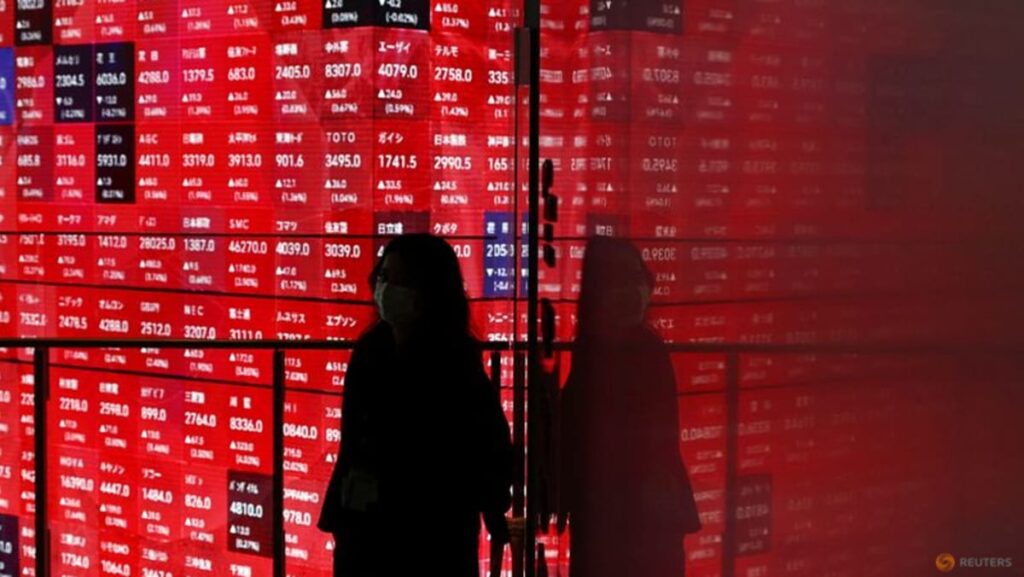HONG KONG: Asian stock markets showed mixed results on Monday (Apr 28) as investors evaluated the current state of the trade war, especially with nations trying to reduce Donald Trump’s substantial tariffs.
Market watchers were also focused on China, where President Xi Jinping and other high-ranking officials recently talked about strategies to increase consumption in the world’s second-largest economy.
Following a positive trend last week, the markets opened on a cautious note, with attention on the impending earnings season, important data releases, and central bank policies.
“As we approach month-end and a week filled with risk events, there’s a collectively ‘cautiously optimistic’ outlook,” noted Chris Weston from Pepperstone.
The potential for risk movements will largely depend on upcoming economic data and earnings from U.S. companies, though current expectations are low, and there are challenges to overcome,” he added.
Weston also mentioned that despite a prevailing sense of caution, there is hope that the White House is aware of extreme market reactions, like the bond market’s sell-off that followed Trump’s “Liberation Day” tariffs announced on April 2.
Investors feel a renewed sense of control, observing how the U.S. administration is responding to fluctuations in the U.S. 10-year Treasury yields, equities, and overall market volatility, understanding that there are limits to these reactions.
After a strong conclusion to the previous week in Wall Street, Asian markets saw varied performance. Cities like Tokyo, Sydney, Seoul, Taipei, Manila, Jakarta, and Wellington posted gains, while Hong Kong, Shanghai, and Singapore experienced slight declines.
The more optimistic sentiment influenced gold prices, which reached an all-time high near US$3,500 last week as investors sought safe havens.
There is optimism among traders that governments can negotiate with Trump to reduce the effects of his extensive tariffs. Last week, reports suggested that China might consider lifting some tariffs on U.S. goods in retaliation.
However, Beijing has stated that there are currently no active discussions between the two economic powers, despite Trump claiming he had a conversation with Xi.
Additionally, Japanese media indicated that a second round of trade talks in Washington is scheduled for May 1.
These discussions will be closely monitored as a measure of other countries’ efforts to secure tariff relief.
U.S. Treasury Secretary Scott Bessent mentioned that a trade “understanding” between South Korea and the United States might be achieved by this week.
In a separate update, Beijing officials were set to hold a press conference on Monday regarding employment, economic growth, and development, just days after China’s top leadership convened to discuss strategies for stimulating growth.
Officials are considering a range of domestic issues aimed at “enhancing the role of consumption in driving economic growth,” as reported by Xinhua on Friday.
They also expressed their intent to “collaborate with the international community to promote multilateralism while opposing unilateral bullying tactics.”


